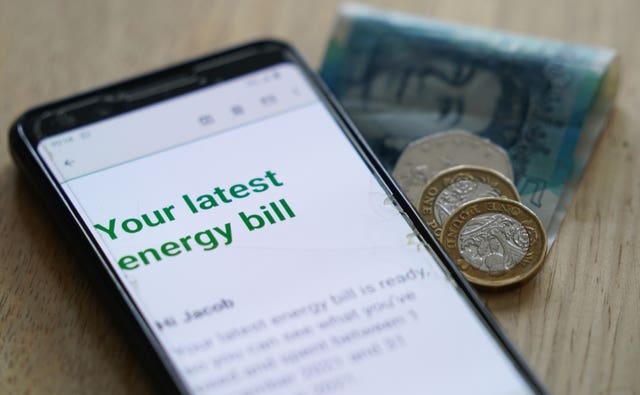Bank of England chief economist downplays fears over inflation surge
Huw Pill called an expected rise in inflation this summer an ‘upward blip’ and said it would probably not affect everyday prices longer term.

The Bank of England’s chief economist has played down fears over an expected rise in inflation, saying the causes are “largely mechanical”.
Huw Pill said that despite forecasts of inflation climbing to 3.7% in the second half of the year, it is “unlikely” to have longer-lasting effects on everyday prices.
He said this is mainly because the causes are things like rising energy and water bills, school fees and bus fares.
Mr Pill called those factors “largely mechanical in character” and described the upswing in inflation as an “upward blip”.
He added: “I don’t think we should interpret (the causes) as indicative of this underlying process of inflation… that we are influencing through monetary policy.”
Mr Pill was speaking a day after the Bank cut interest rates to 4.5%, a quarter point cut, bringing it to the lowest level in more than 18 months.

But policymakers also painted a gloomy picture for the UK economy by halving their growth forecast for this year and predicting faster price rises.
In their February policy report, they said the economy will only grow 0.75% this year, down from a previous estimate of 1.5%.
Meanwhile inflation, after falling to the Bank’s 2% target in 2024, is now on the up again, albeit less dramatically than increases seen in recent years.
Inflation measures the rate prices are rising across the country, and is the key driver behind the Bank’s decisions on the base interest rate.

Mr Pill added that the Bank’s base assumption is that it will “probably not have second round effects beyond the modest ones we see in normal times”.
But he said policymakers should still recognise that the prices that are rising are “ones that people face every day, or at least regularly”.
“There are risks to both sides and that’s something we have to remain quite vigilant about,” he added.
The Bank is likely to make several more rate cuts this year, after governor Andrew Bailey said on Thursday that he expects more reductions as “the disinflation process” continues.
But Mr Bailey also said the Bank must be “gradual and careful”, a sentiment Mr Pill echoed on Friday.
That is despite two of the nine members of its Monetary Policy Committee voting for a steeper half point cut to the base rate, a move Mr Pill described as “rushing”.
Mr Pill said: “Given what we know now, at least for me, the ‘gradual and careful’ would not lead us to be rushing to the more sizable moves in interest rates, even as some of our colleagues do.”





